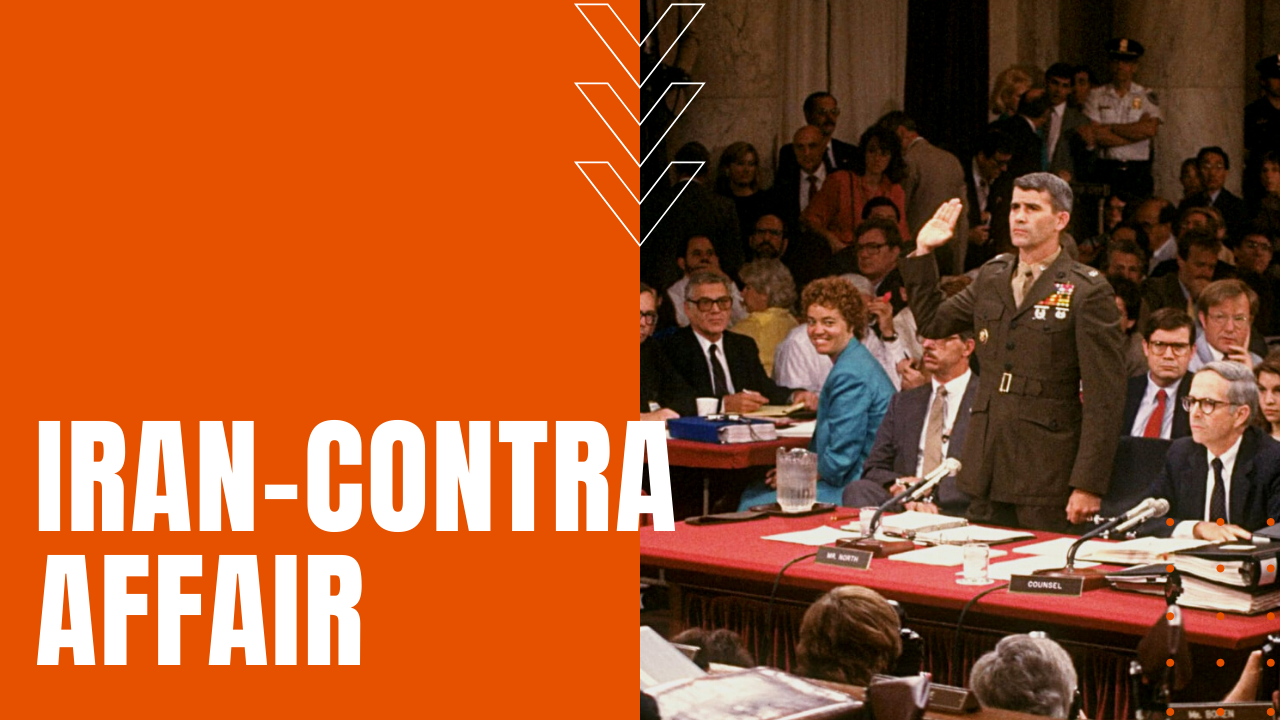Iran-Contra Affair

The Cold War-era Iran-Contra Affair became headline news in 1986, after a Beirut newspaper first reported on an arms deal between the United States and Iran, despite U.S. sanctions dating back to the Iran Hostage Crisis, under the thinly-veiled objective of buying the release of seven hostages held by Iranian-backed terrorists in Lebanon.
What is the Iran-Contra Affair?
In an effort to skirt legislation passed by Democrats known as the Boland Amendment, which restricted the CIA and the Department of Defense from engaging in foreign conflicts, President Reagan gave tacit approval to National Security Council head, Robert MacFarlane and staffer Lt. Colonel Oliver North, who devised a scheme to finance the Contras—a group of drug-dealing guerrillas fighting the Marxist government of Nicaragua—by over-charging Iran for weapons, in turn siphoning off the profits to the Contras.
Navy Vice-Admiral John Poindexter, the president’s national security advisor, testified before Congress that he kept details of the covert operations from the president and his advisors, including Secretary of State George Shultz and Secretary of Defense Caspar Weinberger.
After a joint congressional investigative committee began probing the Iran-Contra deal—along with a Reagan-appointed independent investigative group known as the Tower Committee—the politically-divided House and Senate were troubled to find that a major policy initiative was carried out by private businessmen yet run by the National Security Council staff.
Report Deems Reagan Responsible
When the congressional committee’s final report was issued in late 1987, the report ruled that the ultimate responsibility for the events in the Iran-Contra Affair rested solely on the president, and while the president may not have known what his national security advisors were doing, he should have.
While the American press hounded Reagan over the matter for the rest of his presidency, by the end of his second term, only one private contractor, Thomas Clines, actually served time for his part in the Iran-Contra Affair, and while Reagan himself acknowledged under oath that the entire affair was a mistake, his many supporters ultimately shelved the Iran-Contra Affair to a largely overlooked place in American history, helping to build on Reagan’s lasting moniker as the Teflon president.
